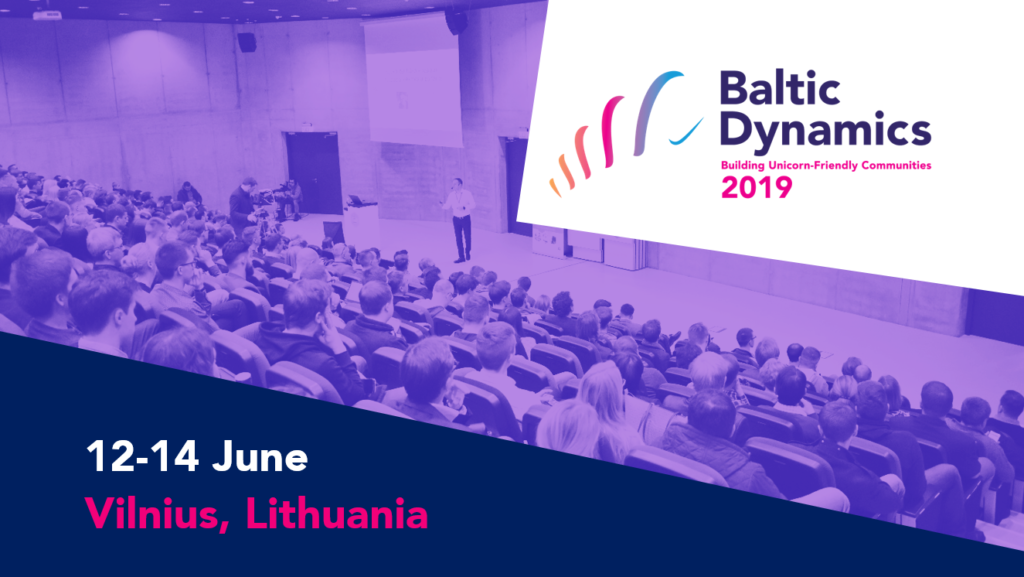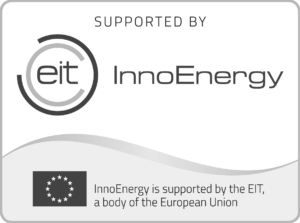23.05.2019
Unicorn Companies: Work Hard, Play Hard?
Berlin is competing with London for the title of the leading startup hub in Europe and the Brexit is making this battle even more intriguing, says Daniel Jach, startup enthusiast and innovation expert. He is going to present main lessons from Berlin startup ecosystem at the international innovation conference Baltic Dynamics 2019: Building Unicorn-Friendly Communities on June 12-14 in Vilnius, Lithuania.
Every 20 minutes, a new startup is being founded in the German capital, making it the perfect incubator for emerging unicorn companies. Why it is a desired spot for startups and what else matters for perspective businesses, introduces Daniel in the interview.
As Berlin manages to foster young companies, what defines the startup culture the city is famous for?
Berlin, as a home for Zalando, N26, or HelloFresh unicorns, is famous for its “get it done” mentality, combined with a “work hard, play hard” attitude. Berlin founders are extremely focussed and open for business as well as talents from all over the world. A German passport or an elite university degree is not a prerequisite to succeed. Hierarchies, especially in early-stage startups, are pretty flat, meaning that hard-working employees always get the chance to proves themselves in higher positions. The trend shows that nowadays it’s getting more and more difficult to separate private and professional life. Startup teams in Germany’s capital bond quickly, making the office feel like a family. Having a beer with a colleague after work or partying together is nothing unusual – it’s a general characteristic of the Berlin vibe. Your boss will even fully understand if you come to a meeting a little bit later the next day. But this freedom comes with a certain discipline and sense of responsibility too.
Berlin is rather a cosmopolitan city combining various cultures and nationalities. How does Berlin manage to facilitate community relations?
Berlin is not the classical Germany, as we know it. It’s a vibrant pool of internationals from different heritages and cultural backgrounds. Even though other cities in Germany have their niches (e.g. Stuttgart or Munich are home to the car industry, Hamburg to press, insurance, and media, or Frankfurt to finance), Berlin combines them all in one place. Community relationship management is a large factor holding Berlin’s lively entrepreneurial ecosystem together. Emerging unicorn companies explicitly choose this city as their breeding ground for a reason. Both the political and economic conditions foster and strengthen the community – the city welcomes and supports new ideas aimed at this goal. The vast portfolio of incubators, accelerators, and co-working spaces speaks for itself. Berlin entrepreneurs are provided with an excellent infrastructure of content, events, and workspace where they can meet up and develop ideas. They are additionally being given the chance of connecting at various conferences or meetups to share their business experiences and expand their professional network.
What lessons from Berlin can be adaptable for the Baltic Sea Region?
In my opinion, the Baltic countries are probably one of the most progressive regions in Europe when it comes to digital infrastructure and innovation. For instance, Lithuania has the fastest internet connection in the whole continent – even Berlin cannot compete with that. Estonia offers foreigners willing to do business in the country eCitizenship! That is why I firmly believe that both sides can and should learn from each other. Berlin’s historical development has shown that it’s possible to build a high performing startup ecosystem literally from scratch. After the fall of the Berlin Wall, a whole new area was born and step by step transformed into what it is today. General lessons that could be adapted by other cities willing to become leading startup hubs or foreign founders are the need for an open and tolerant mindset and view on the world. English should be a possible means of communication to attract talents and gain access to global networks. It is often necessary to leave one’s own comfort zone (either politically, economically, or personally) and change perspective. With the rapid and constant growth of the digital world nowadays, ecosystems need to take risks, dare, cooperate interdisciplinarity and internationally, and disrupt to survive long term.
Unicorn companies are still an exception. How can startup communities not to get into the failure trap and manage not to kill future unicorns?
The dream of building the next unicorn or coming up with the next big idea is pursued by many. But only a minimal percentage actually realizes this dream. There is nothing there can be done about that. To be honest, I don’t think everyone should be founding a startup – the topic is way too overhyped right now. A lot of people jump on this train hope and rarely reach the last station. What I can recommend from my experience and observations, is starting a business with the right motivation, which in most cases isn’t making money. Because if the only drive behind that is financial, the company is already programmed for failure. Strong dedication and passion, combined with wise decisions are the ingredients of this success recipe. Today, failure is a normal part of business and life in general. Successful entrepreneurs and the ecosystems they thrive in adopt a trial-and-error culture. This doesn’t mean one should not learn from mistakes from the past. Young founders living this culture usually prove to be successful, maybe not the first time, but the second or third. There is room for experimentation, and it is often very rewarding.
Cities and startup ecosystems are competing to become the most desired hubs for unicorn companies. Innovation communities may be the answer on how to activate the most perspective startups and win this battle. The international innovation conference “Baltic Dynamics 2019: Building Unicorn-Friendly Communities” invites to discuss and analyse these issues in business workshops with well-known investors, scientists, and entrepreneurs on June 12-14 in Vilnius, Lithuania.
Registration: http://www.balticdynamics.com/













